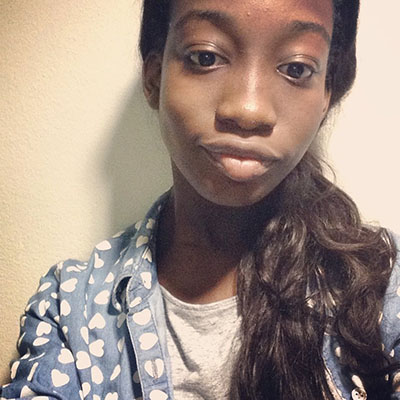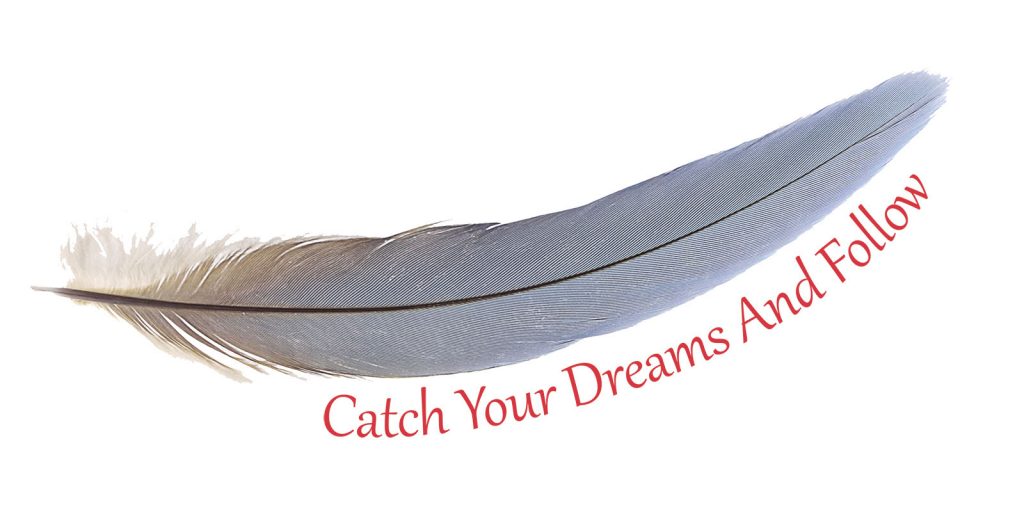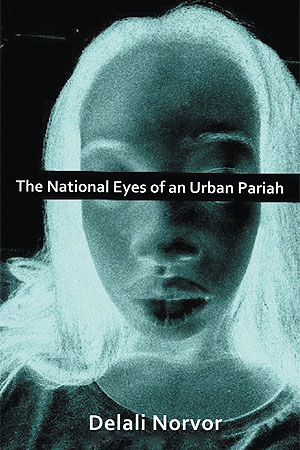Delali Norvor shares with us an intimate account of her own life with mental health and the tragic legacy mental health can leave behind.

Delali Norvor was born in Accra, Ghana in October, 1995. Being diagnosed with mild Cerebral Palsy did not stop her from living life and earning a lot of rare accomplishments for people her age. Delali is a published poet/author with three books available online. She has been recognized by several publications who excitedly praise her and has her future referred to as “bright, and promising.” Delali is a college freshman, who has aspirations to go to law school.
My name is Delali, and I suffered from depression. Her name was Ayo, and she, too, suffered from depression. I have Cerebral Palsy, while she had Autism. What triggered my depression was the presence of my disability. I walk a bit differently, I talk differently, and I have mild hearing loss.
I possess intelligence, so I was sent to mainstream schools that mean I was the only disabled person in my class. From PreK to second grade, I didn’t know I was different. My parents did an excellent job of making my disability invisible and letting my abilities come to the light. My family never treated me differently; they treated me the same way the children were treated. For that, I’m thankful because their inclusive treatment allowed me to be fearless and confident.
My mom called me a diva when I was growing up. She said that even though I couldn’t talk (I didn’t start talking until I was five and half years old), I still “argued” with her and let my opinion be known. For an example, she will dress me in an outfit I didn’t like; and I will shake my head no and use my body expressions to tell her I did not like the outfit she picked for me. Since then, she allowed me to choose my own outfits by letting me point the one I wanted to wear. So yes, I wasn’t treated differently in my home, and that allowed me to gain confidence whenever I was not home
When I started talking, they took me to a mainstream school where I was the only disabled student, but I didn’t know that, because everyone treated me just the same. I made some friends, and I grew up with them till 5th grade before going to another school to middle school.
From PreK to second grade, I had a close group of friends, and I always thought we were going to be friends forever until we graduated from high school. Unfortunately, that bond of closeness dissolved for me in second grade. My friends pushed me out of the group then. I was being treated differently by them, and I didn’t know why. I was so confused, because the same group of friends that I grew up with were treating me differently as we entered elementary school together.
I still didn’t know I was “disabled”. You may be reading this article and think to yourself, “well, what if you weren’t treated differently because of your disability?” I would tell you to wait and allow me to get my points across. I started getting the “you’re different” treatment in First Grade. In P.E., for instance, I was slow and not so athletic. I ran differently and, in a race, I never finished first, or whatsoever. Because of that, I was always the last one to be picked.
It hurt my feelings because my friends never picked me to join their team, and they were supposed to be my friends. It didn’t make sense, since some of their peers that were selected to join their team weren’t even that fast or athletic, but they tried their best. That’s the point. I tried my best too. I started observing how people walked and ran, and how I walked and ran.
I started getting the “you’re different” treatment in First Grade
I started noticing that I was different, and it threw me in a temporary loophole. I started wondering why I was different, and so on. I kept waiting for my parents to give me an answer, but I never asked and I don’t know why. I think that was the early stages of depression for me. Being treated differently and not knowing exactly why you’re different.
On the first day of third grade, I was waiting outside for the bell to ring so we could enter the classroom. I noticed a girl my age sitting in front of the classroom, just crying hysterically. I felt bad for her. Even though she was being comforted by her mother, she was still crying so I thought to myself that maybe she will stop crying if she met someone her age who befriended her. So I walked up to her and greeted her; she was still crying. My attempted plan to make her stop crying still didn’t work. So I just sat beside her and comforted her, alongside with the mother. Later in the day, she stopped crying, and she introduced herself to me and the rest is history.
She was so fresh, spunky, amazing, funny, and just warm. After third grade, she and her family moved to another country, so we stayed in touch via email. After a while, she stopped emailing me, and I never understood why. Five years later, I was on Facebook and had the urge to search her name and there she was. I quickly added her, and she accepted.
However, we still didn’t talk much, and I wondered why again. A year later in 2013, she hit me up, and I was overjoyed. She explained to me the reason she stopped staying in touch with me was because she was suffering from autism and depression, so she was being treated for it.
She had a rare form of autism, and there was a lack of successful treatment for it. It took me back to the time I was diagnosed with Fibromyalgia during my sophomore year of high school.
do not ever refer a disabled person as a retard or dumb
When I was a sophomore diagnosed with Fibromyalgia, that is when my depression exploded. Fibromyalgia is a chronic disorder characterized by widespread musculoskeletal pain, fatigue, and tenderness in localized areas. Before I was diagnosed, I didn’t know it was fibromyalgia. I just thought it was my disability that was worsening, and it made me even more depressed.
The reason I was more depressed, was because I couldn’t go to school anymore. I was paralyzed with pain from head to toe, and it affected my mobility. I thought my life was over. That thought made me angry and sad because I had a lot of plans for my future. I wanted to go to law school and start my own practice.
With the thought that my life was over, I became suicidal. Life wasn’t worth living anymore, because school was the only thing that kept me happy and distracted me from my 16-year-old mind which was filled with thoughts regarding my insecurity with my body and disability.
I was being bullied for having a disability. I had people call me a retard and referred to me as dumb. School was the only thing that told myself that I wasn’t a retard, and I wasn’t dumb.
But first of all, do not ever refer a disabled person as a retard or dumb. The problem with society is that persons with disabilities are seen as disabled first and human second. I honestly feel like people with disabilities are treated by “normal” people as reminders that the disabled person’s life is harder than the “average” person’s life.
Stella Young, an advocate for disability equality who recently passed away, said the disabled population is treated as “inspiration porn.” She pointed out that persons with disabilities are used as “objects of inspiration.” We have only experienced disabled people inspiring you, and that is it. Ms. Young also pointed out that the majority of society hasn’t experienced disabled people as your teachers, doctors, or your manicurists. Society has just experienced disabled people as “objects of inspiration.” I’m also going to point out that while society treats me as inspiration porn, insecure society treat disabled people inferior to feel better about themselves.
I had created a vision board of all things I wanted to accomplish
This can explain my bullying and the negative experience of people looking down on me, just because I have a disability. While you might say “I was bullied too, even though I don’t have a disability,” you were probably bullied for something you had control over. For instance, people may be bullied for being smart or not being “physically attractive” enough. However, they were able to heal from it timely because being smart gets rewarded, and puberty or finding a loving partner (or even surgery) restored the bullying victims’ confidence and self-esteem. I got bullied for having a disability, I can’t have surgery to remove it, and puberty didn’t do anything to it. I have no control over my disability, and it’s going to be a part of my body till I die, just like the color of your skin is going to be with you till you die.

The thing here is once I realized I couldn’t change my disability, I started wishing that the bullies would tease me for being smart and not the other way around. They should bully me for being smart because I know my intelligence will pay off in the end when I get into college and get a degree and go to law school afterward. However being bullied for something I don’t have control over, led me to being insecure and depressed.
On top of all of that, I was battling Fibromyalgia that I thought was part of my disability. I feel sorry for my family because they had to deal with me and my suicidal tendencies. I would cry every day and scream those words of “I want to die!” repeatedly. I couldn’t get a doctor’s appointment because the Children’s Hospital was overbooked, and I had to wait for three months. Imagine three months of constant, unbearable pain that leaves you bedridden and puts your life on hiatus.
Talking to Ayo that year reminded me of my experience, so I tried my best to tell her she can overcome depression and unhappiness. She had always had mood swings, but it got worse as she grew up. It hurts me that she was going through that because she was such a bright star who could shine your dark nights. We had a hearty laughter every time we chatted and gave each other advice whenever we complained about our miserable teenage years that we were experiencing. We were concerned about each other, and that’s true friendship.
During Christmas of 2013, she wrote me “Merry Christmas. This was the year we got in touch again It was good to know good friends always stay friends even if you don’t see or talk to them for a very long time. It felt like if I never stopped talking to you and I feel honored to have such an amazing friend.”
We talked more during 2014 and became closer than ever. However, when I entered college in the fall, I didn’t have time to chat with her. I was always buried with studying and homework. Whenever I was free, she was sleeping. The time difference was a hurdle because she was in Holland while I was in the USA.
Each time we chatted in the Fall, she expressed her feelings of frustration. She felt like her life was on hold because she was getting treated for her depression in a mental health hospital while I was in school, preparing for my future. Ayo finished high school a year early and to me, I think she felt even emptier because she said she had nothing to do and she was bored. At the same time she was bored, she was still feeling unhappy and felt like life didn’t have anything to offer her.

I reminded her that I was in her shoes before and even though I wasn’t in a hospital, I was treated for it, and I got better. She asked me “how?” and I told her “by thinking positively.” I told her that I started planning my future. I had created a vision board of all things I wanted to accomplish.
I told her that my dreams gave me hope, and asked her “what is your dream?” She said she wanted to design costumes for Broadway or design buildings and travel all over the world while hosting the travel show. I want to be an hotelier and own hotels all over the world, so she said “when you become a global hotelier, I’m going to stay in your hotel for free.” I told her that dreams distracted me from the dark chapter I was in, so she shouldn’t give up because her dreams were beautiful and she could accomplish it if she just believed her life was worthy and the world was her oyster.
Later, in the summer of 2014, she got this cool tattoo of a feather with Dutch words inscribed around it. The words were “Catch your dreams and follow.” Sadly, that wasn’t enough because depression beat the motivation she was getting from me and others.
Depression killed her in November 2014.
I love you; I miss you. Rest in peace, Ayo.

Delali contacted us only to tell us her story and that of her friend. She didn’t mention or ask us to discuss her books or other aspects of her amazing achievements. But, with her permission, we did.

The National Eyes of an Urban Pariah and Baptised in GXLD are collections of wonderful and thoughtful poetry. Look for them on Amazon.
Editor: This article very nearly didn’t happen. As we were preparing to lay it out, we received an email from Ms Norvor retracting it, explaining that Ayo’s parents were not yet ready. We were disappointed, but understood. We later received another message from Ms Norvor, allowing us to print her story. We are grateful to Ms Norvor for sharing this story with us, and to Ayo’s parents for allowing her to do so. Thank you.

